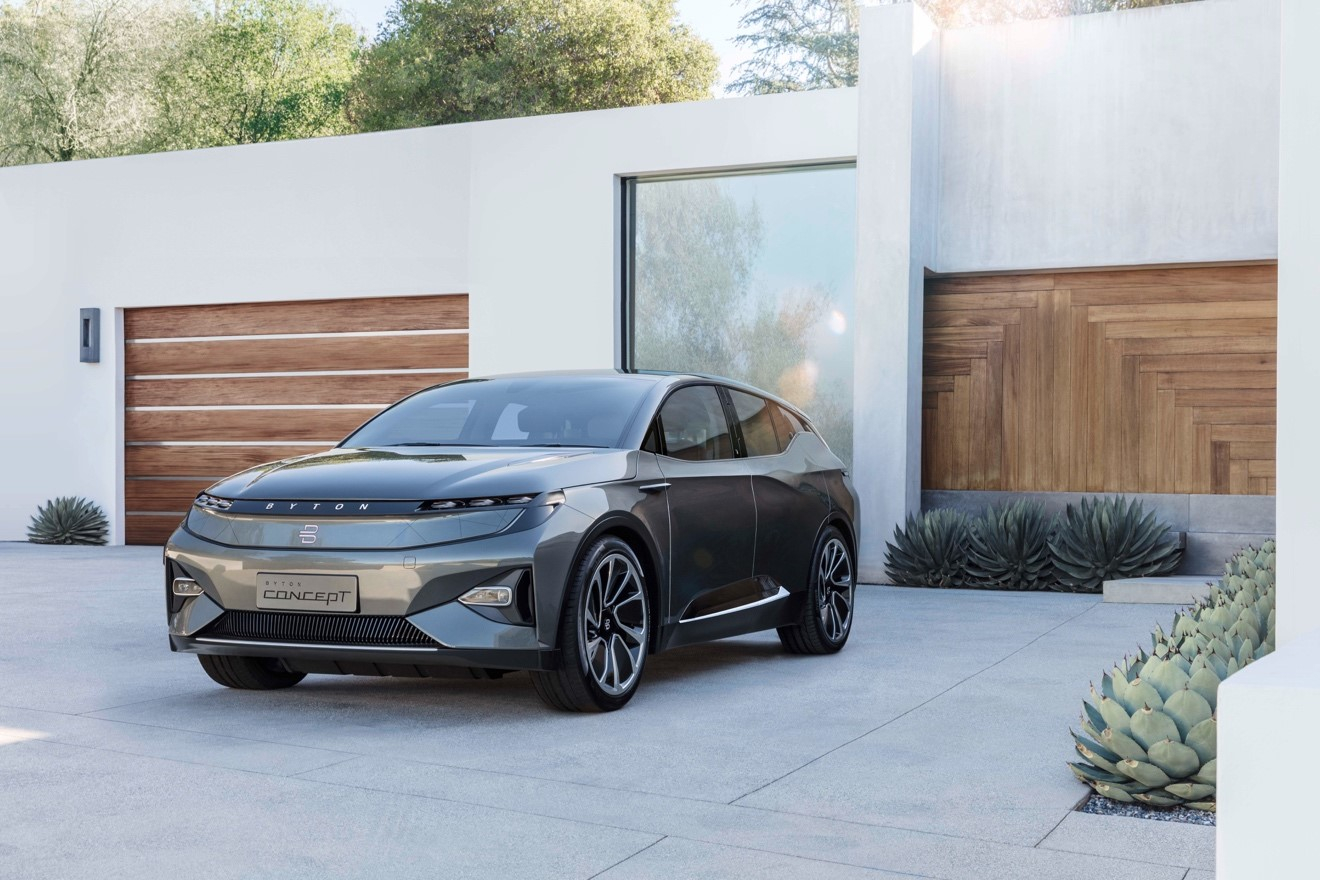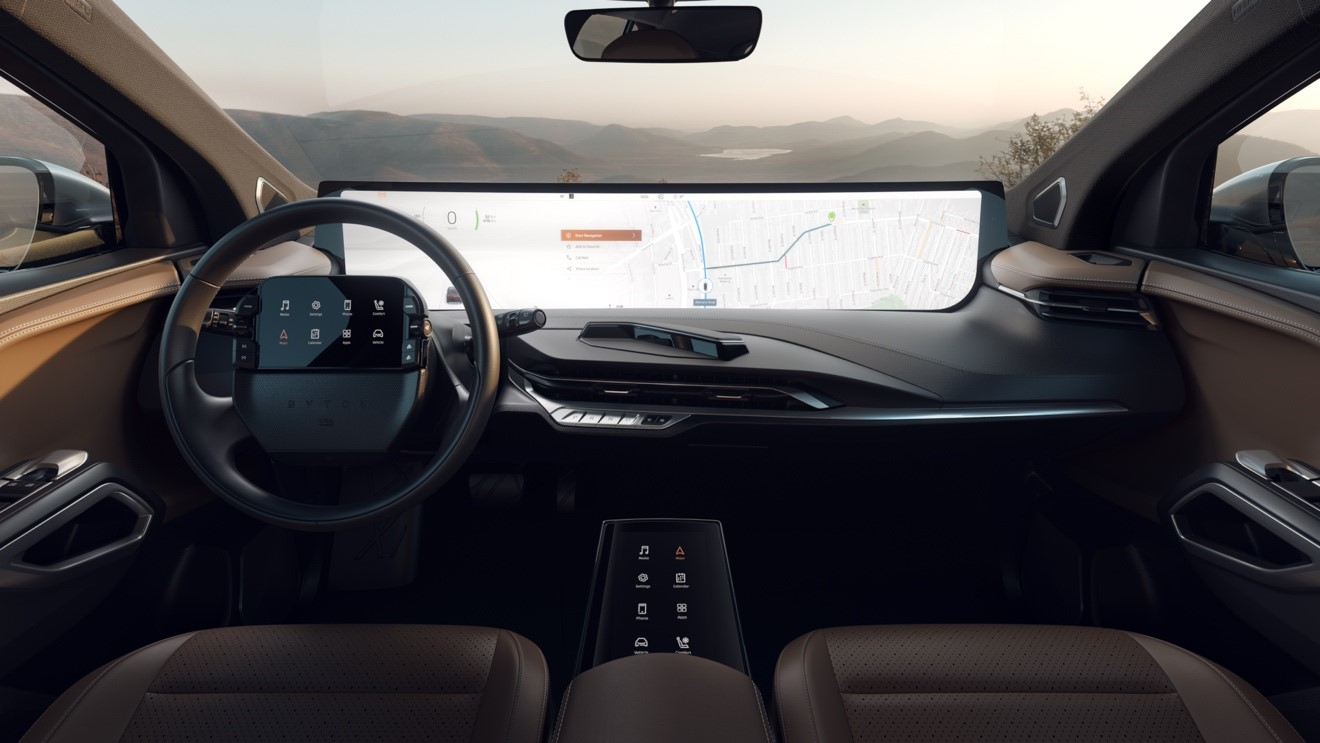

Most Chinese-made cars don't have a reputation for being cool or hip. But some say that's about to change. In recent years, new car brands in China are making electric vehicles that aim to rival Tesla. Enter Byton. Launched in 2017, the company is trying to reshape what people think about not only Chinese-made cars, but urban vehicles in general.

Byton's M-BYTE is expected to start delivery in late 2019. /Photo from Byton
How fast can this car go from 0-100? How does it handle corners? Byton said these kinds of issues don't matter much in everyday use. Instead, what's key is the ICE – not the internal combustion engine but what they call the Intelligent Car Experience.

The interior of the car is Byton's main selling point. /Photo from Byton
One look inside and you'll see what that means. With a 48-inch panel that promises smart controls, the car is designed as a high-tech space rather than a speed machine.
"This is neither a car nor a smartphone but we bring the best of these worlds together," said Daniel Kirchert, CEO of Byton. "Even in a normal driving scenario, it generates some great experience. But if you think about an autonomous scenario or a semi autonomous scenario, that will be amazing."
Byton is going all out to differentiate. Experts say prioritizing electric and high-tech features is paramount for industry newcomers if they are going to win over the three key parties: One: the massive consumer base. "It is always very challenging for a new player to come into a market when this is already highly competitive. In China, there are over 100 OEMs already playing in the ICE space," said Raymond Tsang, partner of Bain&Company, a consulting firm.
Number two, the investors. In an industry that requires a lot of cash and a long growth period, capital matters a lot. And it won't come easy if you're just another traditional car company.
Finally, the authorities. In China, officials no longer release petrol or gas-fueled car OEM licenses. Instead, they are very supportive of new energy. For car startups, going electric is the best way to receive local government support like land. "This is the best place currently in the world to do what we are doing and maybe in the way we are doing it, the speed we are doing it, maybe it's the only place," said Kirchert.
But beneath the enthusiasm lies a reality check. Skeptics of these new car companies are quick to mention production speed and quality control. And many of these newcomers have no track record in mature industrial processes or operation. After news of delivery delays and quality trouble in the industry, investors are cautious. "There is still a lot of investment going into this sector, but obviously that has slowed down a bit in the last 12-18 months," said Tsang.
More consumers are getting a bit suspicious about the business model too. "Right now what investors understand and what the capital market understands: it's not only about having a great idea and a disruptive product, which I believe we have. It also includes managing your very basic things like your costs, your fixed costs, your variable costs, come up with a great business model, have a reasonable path to break even," said Kirchert.
Byton is using its own factory to build cars. Kirchert, its founder and a former BMW executive, says there are now 50,000 reservations and he is confident about meeting production goals when their car starts shipping later this year. "There is not any reason that a Chinese-built car cannot be absolute top global standard, at least on the same level as a German-built car," said Kirchert.
At the end of the day, experts say the true moment that Byton proves itself worthy of the hype is when the cars are in customers' hands and the wheels hit the ground.

Copyright © 2018 CGTN. Beijing ICP prepared NO.16065310-3
Copyright © 2018 CGTN. Beijing ICP prepared NO.16065310-3